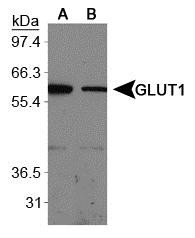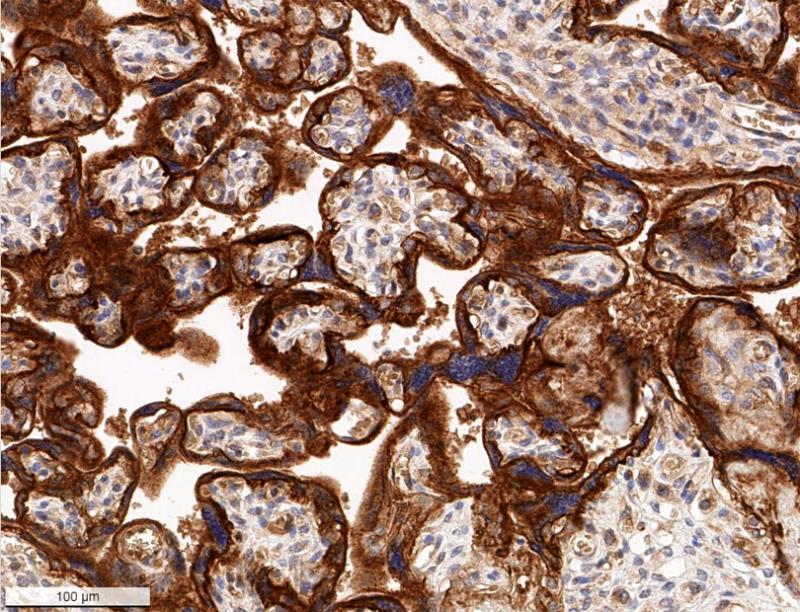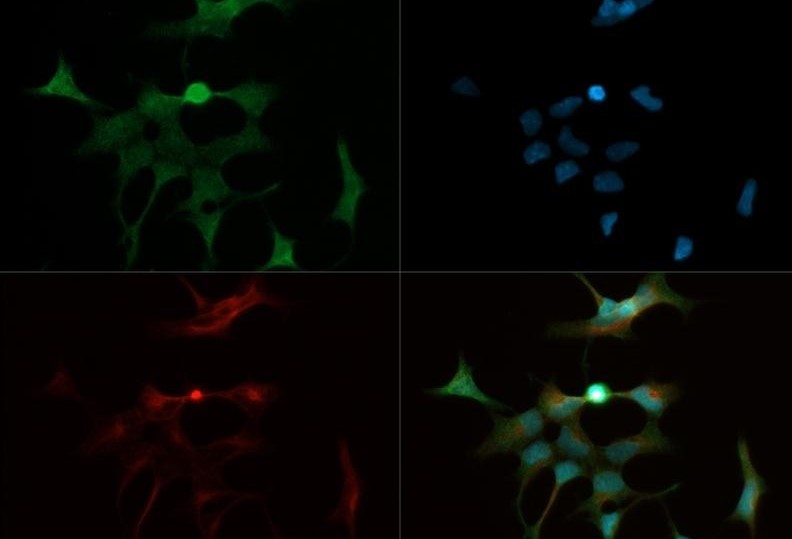Background:
Glucose transporter 1 (Glut1, SLC2A1) is a widely expressed transport protein that displays a broad range of substrate specificity in transporting a number of different aldose sugars as well as an oxidized form of vitamin C into cells. Glut1 is responsible for the basal-level uptake of glucose from the blood through facilitated diffusion. Research studies show that Glut1 and the transcription factor HIF-1α mediate the regulation of glycolysis by O-GlcNAcylation in cancer cells. Additional studies demonstrate that Glut1 is required for CD4 T cell activation and is critical for the expansion and survival of T effector (Teff) cells. Mutations in the corresponding SLC2A1 gene cause GLUT1 deficiency syndromes (GLUT1DS1, GLUT1DS2), a pair of neurologic disorders characterized by delayed development, seizures, spasticity, paroxysmal exercise-induced dyskinesia, and acquired microcephaly. Two other neurologic disorders - dystonia-9 (DYT9) and susceptibility to idiopathic generalized epilepsy 12 (EIG12) - are also caused by mutations in the SLC2A1 gene.
UniProt ID: P11166


